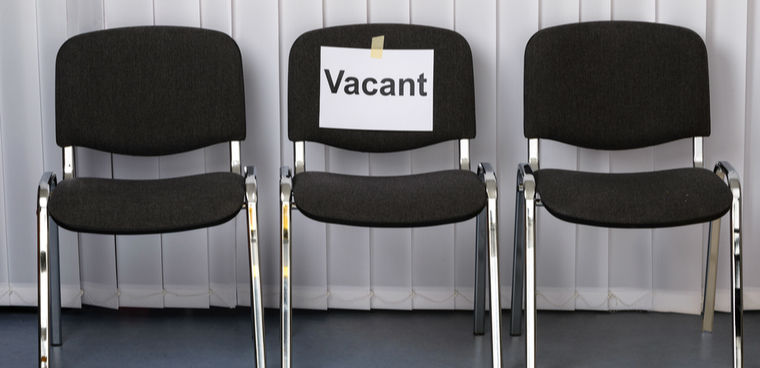Federal vacancies hamper government response to COVID-19, groups allege
Government oversight experts and advocacy groups say Senate leaders should withhold cooperation until vacancies are filled.

High level vacancies are hampering the Trump administration's response to the COVID-19 pandemic, according to a group of organizations that focus on issues such as immigration, climate change, and government accountability.
In a letter sent April 14 to Senate committee chairs and ranking members, 18 advocacy groups led by Public Employees for Environmental Responsibility argued that the lack of confirmed officials in senior positions is increasingly hampering pandemic response.
"We continue to witness a worsening, widespread vacancy issue across the federal government where key offices are without Senate confirmed leadership, sometimes for years on end, to the detriment of the agencies' functioning," the organizations including National Federation for Federal Employees, Union for Concerned Scientists, and the Project on Government Oversight stated in the letter.
Agencies such as the Department of Homeland Security have operated for months, and in some cases years, without Senate-confirmed leaders. DHS Secretary Chad Wolf, who has served in an acting capacity since November 2019, is the fourth secretary to serve in three years, a fact the letter pointed out. High level vacancies are a persistent problem at the departments of Interior, State, Health and Human Services and elsewhere across government.
Public health and disaster management roles such DHS Under Secretary of Science and Technology and the Federal Emergency Management Agency's Deputy Administrator position are staffed by acting personnel. The Offices of Personnel Management and Management and Budget have installed new leaders in recent months after prolonged periods of turnover, "[creating] a long confusing line of 'actings' heading both of those offices."
"We fear that the leadership vacuum in several federal agencies is weakening the nation's response to the coronavirus pandemic," PEER and its co-signers wrote. "The effect of [this] is disastrous considering DHS has a central role in responding to the coronavirus."
Kristine Simmons, the Vice President of Government Affairs at the Partnership for Public Service, said that the process to confirm Presidential nominees had lengthened considerably in recent years.
"This administration has had a difficult time getting nominees through the Senate," she said in an interview with FCW, noting that a recent report from the Partnership showed that Trump's appointees took twice as long to be confirmed as that of former President Reagan.
"Part of it is the complexity of the confirmation process. There is a lot of burden on nominees. The length of the process can be discouraging for people, and it's easy for folks to make unintended mistakes in the nominating paperwork, which all have to be resolved before the nominee can be sent to the Senate for consideration."
The organizations listed in the letter urged Senate leaders to use their advice and consent powers under the Constitution's Appointments clause to force the White House to speed up nominating personnel to critical vacant positions and withhold cooperation if the Administration requests any action from their Senate committees until they install permanent leaders whose agencies fall within their jurisdiction.
According to Liz Hempowicz, the public policy director for the Project on Government Oversight, said there are few if any guardrails in place to ensure that the President or agencies follow Federal Vacancies Reform Act – the law designed to make sure presidential administrations clear their appointees for high office with the U.S. Senate where appropriate.
"It's entirely possible for someone to stay beyond the 210-day period that the law says a person can serve in an acting capacity," she said in an interview.
"The FVRA also requires agencies to report any vacancies to the Government Accountability Office, but it's unclear if there are consequences if they don't self-report. It allows the president incredible flexibility to put temporary people into positions and creates an incentive for him to not nominate permanent leaders."
The letter's authors asked agency inspectors general and the congressional Government Accountability Office to investigate if any prolonged vacancies are punishable under the act.
"Presidential abuse of the vacancies process is not a novel concept -- yet the stakes are incredibly high as our nation is on the front lines of a massive pandemic which requires an all-hands-on-deck approach," the letter stated. "Reforms are called for."





